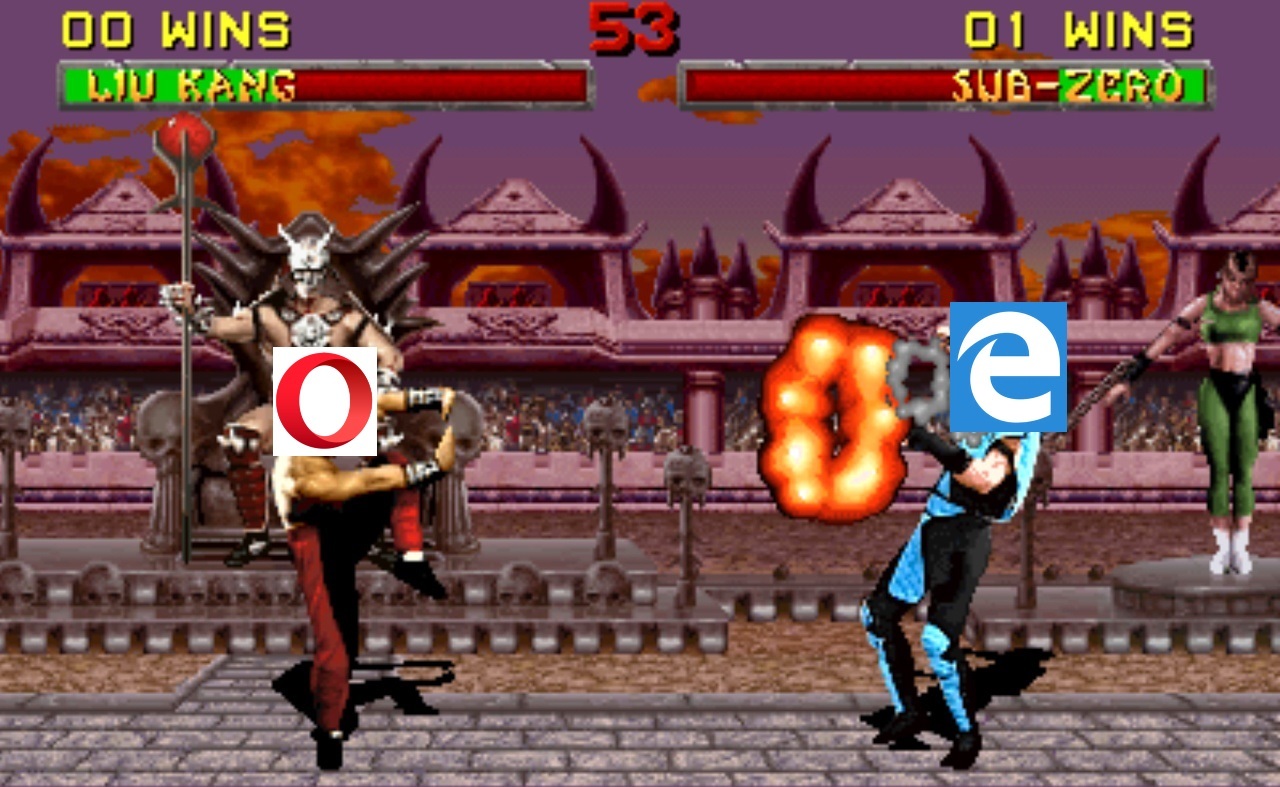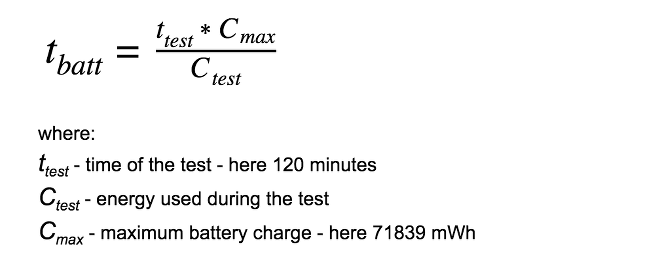Opera responded to Microsoft’s browser energy efficiency test
Microsoft used the test results in the lab and telemetry collected from several hundred million devices on Windows 10 to report that Edge bypasses all major browsers for energy efficiency . According to Microsoft, Opera with the power saving mode in second place, Chrome in third, and Firefox in fourth.
Opera responded to a video from Microsoft and ranked it in which it placed its browser in the first place.

In May 2016, Opera, the first of the largest browser developers, included a battery saving feature in its product. For this, the company has optimized the browser engine and interface. Tests conducted by Opera showed that the browser reduces power consumption by 50% compared to other browsers like Google Chrome. In the video below, we compare the operating time of a laptop with Opera with and without power saving mode.
')
Microsoft Edge did not compare the browser with the new function - largely due to the fact that it only works on Windows 10. Microsoft’s assertion that Edge bypasses all major browsers in energy efficiency forced Opera experts to take the laptops again and check the results competitors. Microsoft did not disclose the test methodology completely, so experts could not do the same. Instead, they used their own method, which includes automatic simulation of interaction with several popular websites, in their opinion as close as possible to the actual behavior of users.
According to the test results Opera Developer (39.0.2248.0) with a native ad blocker and an active energy saving function worked 22% longer than Microsoft Edge (25.10586.0.0) on a laptop running 64-bit Windows 10, and 35% longer than the latest version of Google Chrome ( 51.0.2704.103).

The test was conducted on a 14-inch Lenovo Yoga 500 ultrabook with an i3-5005U processor, 4 gigabytes of RAM and a 500 gigabyte HDD. The backlight was turned off by 100%, Wi-Fi launched in 802.11n mode with a received RSSI signal level of -53 dBm. For every minute battery metering, IOCTL_BATTERY_QUERY_STATUS was used.
The test lasted two hours. Results were calculated according to the formula below. The battery life on it is equal to the ratio of the test time multiplied by the maximum battery charge to the energy expended during the test. As a result, while working with Chrome was 2 hours and 54 minutes, with Edge - 3 hours and 12 minutes, and with Opera - 3 hours and 55 minutes. In the case of Microsoft tests, Surface Book Ultrabooks were used, which worked until shutdown.

Opera developers have achieved these results with the following changes:
We have to wait for what Google will say - it is clear that Chrome will be on the first, but how will the company's specialists distribute the remaining positions?
Opera responded to a video from Microsoft and ranked it in which it placed its browser in the first place.

In May 2016, Opera, the first of the largest browser developers, included a battery saving feature in its product. For this, the company has optimized the browser engine and interface. Tests conducted by Opera showed that the browser reduces power consumption by 50% compared to other browsers like Google Chrome. In the video below, we compare the operating time of a laptop with Opera with and without power saving mode.
')
Microsoft Edge did not compare the browser with the new function - largely due to the fact that it only works on Windows 10. Microsoft’s assertion that Edge bypasses all major browsers in energy efficiency forced Opera experts to take the laptops again and check the results competitors. Microsoft did not disclose the test methodology completely, so experts could not do the same. Instead, they used their own method, which includes automatic simulation of interaction with several popular websites, in their opinion as close as possible to the actual behavior of users.
According to the test results Opera Developer (39.0.2248.0) with a native ad blocker and an active energy saving function worked 22% longer than Microsoft Edge (25.10586.0.0) on a laptop running 64-bit Windows 10, and 35% longer than the latest version of Google Chrome ( 51.0.2704.103).

The test was conducted on a 14-inch Lenovo Yoga 500 ultrabook with an i3-5005U processor, 4 gigabytes of RAM and a 500 gigabyte HDD. The backlight was turned off by 100%, Wi-Fi launched in 802.11n mode with a received RSSI signal level of -53 dBm. For every minute battery metering, IOCTL_BATTERY_QUERY_STATUS was used.
The test lasted two hours. Results were calculated according to the formula below. The battery life on it is equal to the ratio of the test time multiplied by the maximum battery charge to the energy expended during the test. As a result, while working with Chrome was 2 hours and 54 minutes, with Edge - 3 hours and 12 minutes, and with Opera - 3 hours and 55 minutes. In the case of Microsoft tests, Surface Book Ultrabooks were used, which worked until shutdown.

Opera developers have achieved these results with the following changes:
- reducing the work of inactive tabs,
- reduced processor load by optimizing JavaScript timers,
- automatic pause of unused plugins,
- reducing the frequency of frames to 30 per second
- setting video playback parameters and using hardware accelerated video codecs,
- pause animation in browser themes,
- using an ad blocker.
We have to wait for what Google will say - it is clear that Chrome will be on the first, but how will the company's specialists distribute the remaining positions?
Source: https://habr.com/ru/post/395513/
All Articles